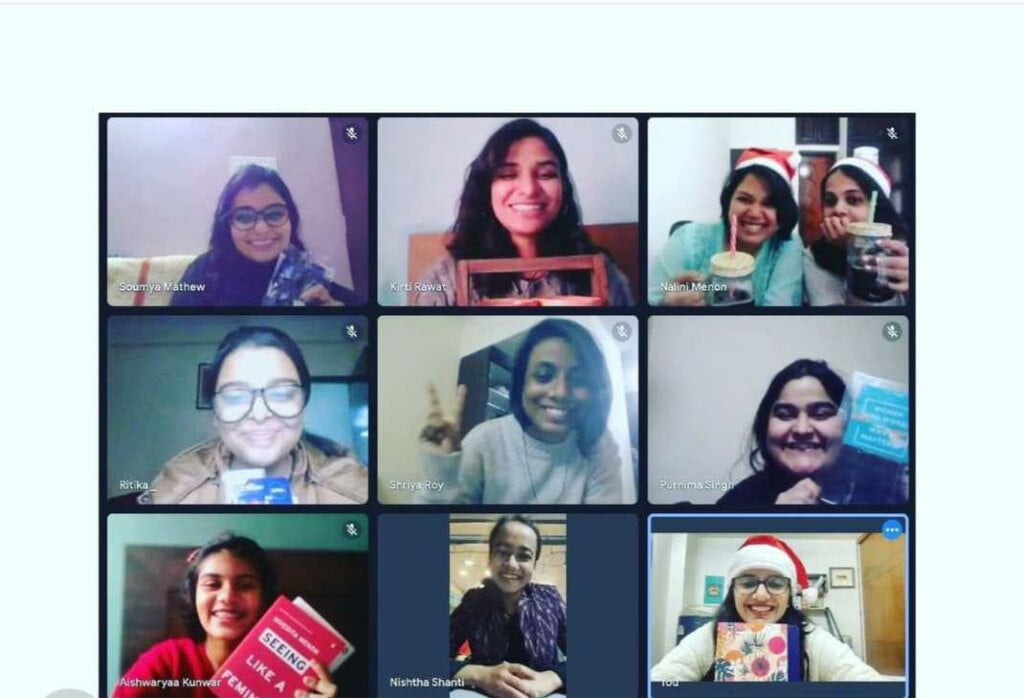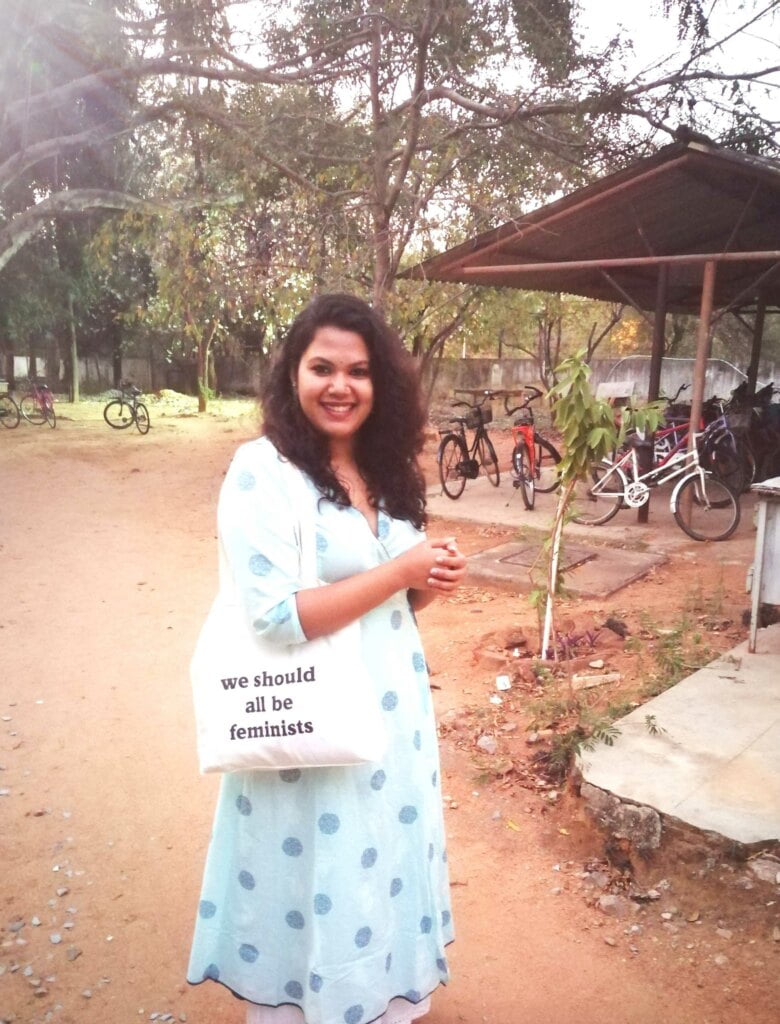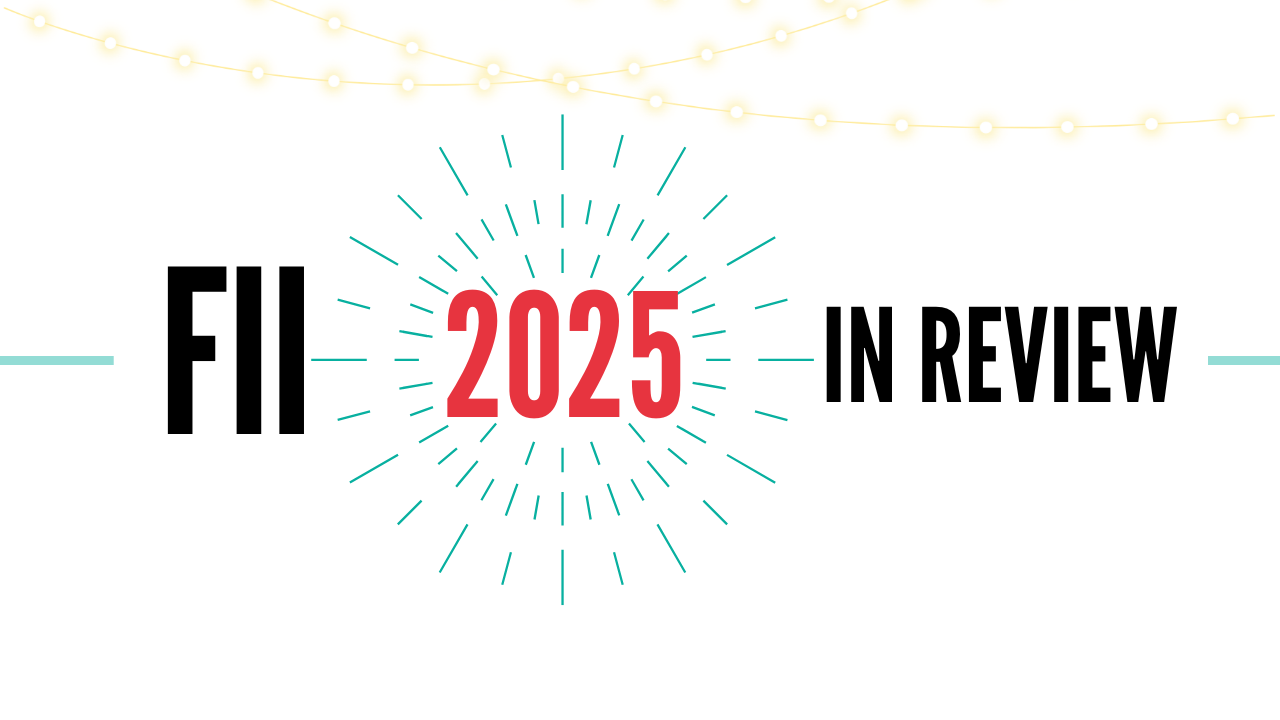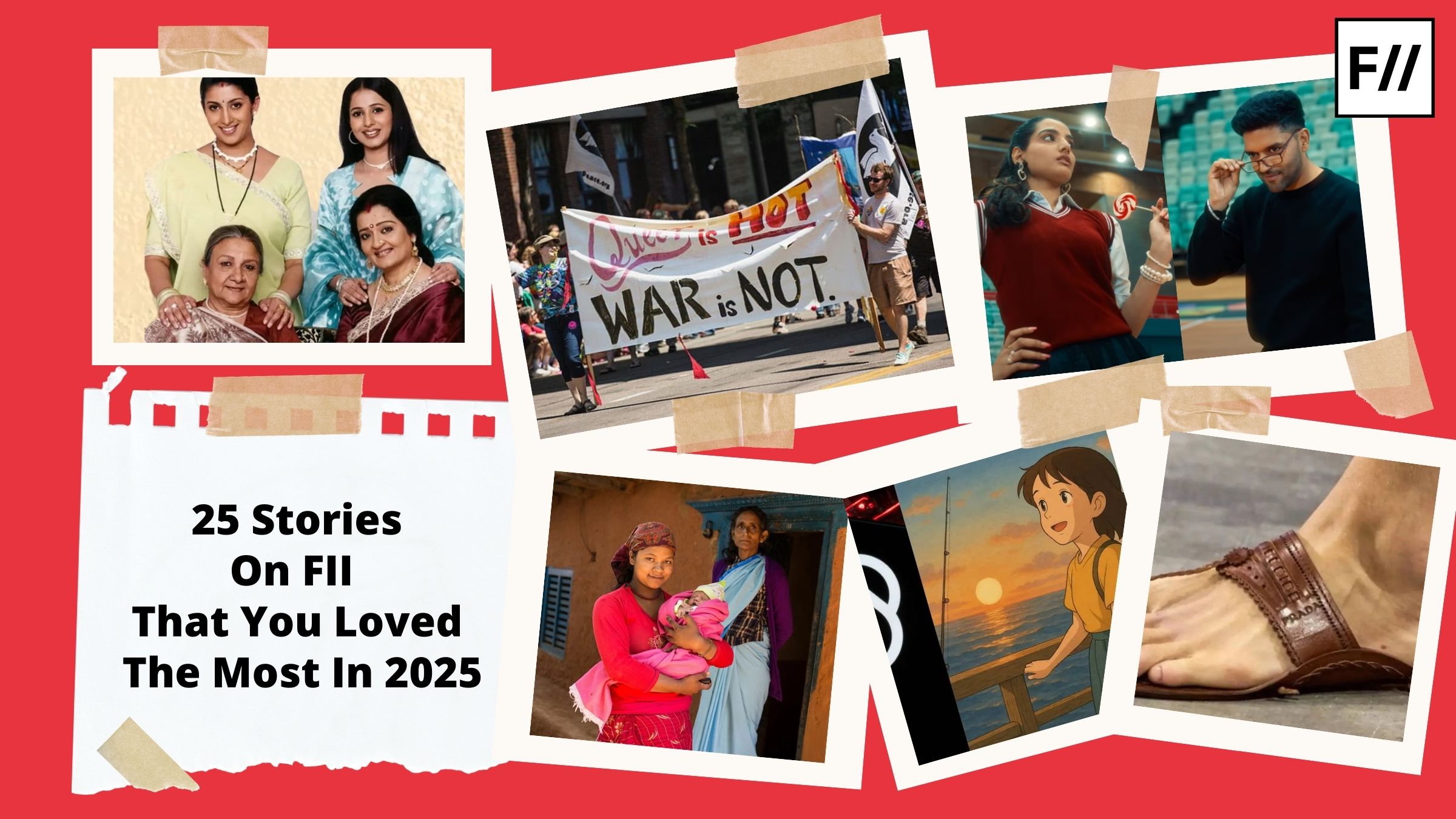As part of FII’s Meet the Team series, we are featuring former and current employees who have worked with or are working with us currently since the inception of FII. Feminism in India as a digital intersectional feminist media platform would not exist if not for these incredible individuals who have helped build this organisation to make what it is today.
Today, we’re chatting with Sukanya Shaji, who is the Associate Editor at FII English. When asked to describe herself, it is very difficult for her to articulate about herself. She is a graduate of law and a postgraduate of philosophy, and she also holds a post-graduate diploma in print journalism. She has experience in law, both on the ground and corporate, and has also worked as a copywriter for advertising. She has journeyed quite a bit, hopping across careers and finally recognising that writing is where she feels at home. She is also a published poet and was the winner of the All India Poetry Competition, 2015. She was also among the winners of the Wingword Poetry Prize 2018 and 2019 and was awarded the third prize at the poetry competition organised by the OnePage Spotlight Literature Festival. Her poems appear in various anthologies and web journals.
FII: What do you like most about being a part of the FII family?
Sukanya: FII is a workspace that offers me emotional safety, creative liberty, and a sense of identity. There is no need for me to elaborate on the relevance of FII’s body of work. To me, what makes FII truly close to my heart is the workplace empathy, mental health sensitivity, and respect for boundaries that are offered to the team.
FII: What advice would you give someone joining the organisation?
Sukanya: Feminist platforms, especially those in the independent space face numerous challenges. It takes a lot of conviction, teamwork, and effort to keep it together. Most all-women organisations like FII are also often taken very lightly, vis a vis workplaces that are run and managed by men. I would urge anyone joining the team to take work very seriously, stick by in crisis, trust the team, and above everything, have fun.
FII: How would your colleagues describe you?
Sukanya: I would hope that they primarily describe me as a reliable colleague and someone who offers them a safe space, as they do to me. I am positive that if nothing, they definitely describe me as a popular culture freak and someone who cracks many inappropriate jokes.

FII: Which fictional character do you identify with and why?
Sukanya: I have for a very long time been obsessed with Kate Winslet’s ‘Clementine’ from Eternal Sunshine Of The Spotless Mind. I relate to the character because she is complex, intense, and extremely honest about her vulnerabilities. She also has a fun edge to her, and at one point, I had also dyed a few strands of my hair blue, to feel more like her. My first and only tattoo is also a line from the film that Clementine tells Joel, her partner at their last meeting.
FII: What is something that you’re tired of hearing?
Sukanya: As a journalist and a woman working on issues related to gender, ‘mansplaining’ is something that really gets to me. Cyberspace is rife with very many accounts that undermine the feminist movement with absolutely frivolous claims. Women journalists are also severely trolled, asked to tone down, and harassed for their work and opinions. I don’t mean to say that everyone must agree with one other, but when people from marginalised gender and social locations speak about their experiences, the least anyone can do is listen and hold space. The kind of violence in wanting to mansplain everything to women, infantilising their intellect is quite draining, to put it mildly.
FII: Which feminist movement do you feel particularly passionate about and why?
Sukanya: I try to learn every day and in the current scenario, I feel intersectionality is key. It is important to not homogenise identities and political stances and to examine experiences through the cross-sections of gender, race, class, caste, sexuality, and the like. I am very much in alignment with the tenets of intersectional feminism.
FII: What makes FII a ‘feminist’ organisation?
Sukanya: FII is an independent media organisation that hosts intersectional feminist content. The fact that the organisation has thrived for so many years in itself is a big win for feminism. What makes FII respectable as a feminist workplace for me is the fact that the organisation never shies away from taking responsibility when there is a mistake. We correct articles and update them with notes that explain how the piece was edited keeping in mind a certain valid critique from readers or the community. This sort of accountability and introspection is vital for any political movement to grow.

FII: What’s the most fun thing about your job?
Sukanya: As the Associate Editor, I have been involved with training and mentoring editorial interns. I enjoy the process of brainstorming with young writers as it enriches me with varied, novel perspectives, and helps me stay connected to the zeal and passion of my own youth.
FII: Do you remember when and why you decided to work at a feminist organisation?
Sukanya: I was always inclined to look at everything through a gender lens because from a very young age I realised that gender is a lived experience. But at that point, I did not have the vocabulary to articulate my feelings. Eventually, with the advent of digital media, many kinds of opinions and perspectives became public and I felt that mine is not an isolated experience. Since then, I have wanted to join the conversation on gender, and do work that ushers meaningful discourse in shifting the gender narrative. It took me a while to come into the political, feminist sensibilities I now embody, and FII happened at the right time. It has helped me learn, grow, and groom myself as a more sensitive feminist and journalist.
FII: If you had a talk show, which feminist icon would you call and what would you ask them?
Sukanya: Right now, I would give my right arm to talk to Phoebe Waller-Bridge! She is the creator, head writer, and titular character of the British sitcom Fleabag. I am unsure if I would call her a feminist icon in the comprehensive sense of the term, but she is one of the most influential creators out there in contemporary times for me. I would really like to know what goes on in her head and how she would be in person. If I can be greedy and ask for one more person, it would be Margret Atwood. I would ask her about the recipe for resilience while being an opinionated, political, woman writer.
FII thanks Sukanya for her timely and valuable contribution to the organisation. We are incredibly grateful to have her as a part of our team and appreciate her for her deeply insightful work. She can be followed on Instagram.
About the author(s)
Feminism In India is an award-winning digital intersectional feminist media organisation to learn, educate and develop a feminist sensibility and unravel the F-word among the youth in India.




